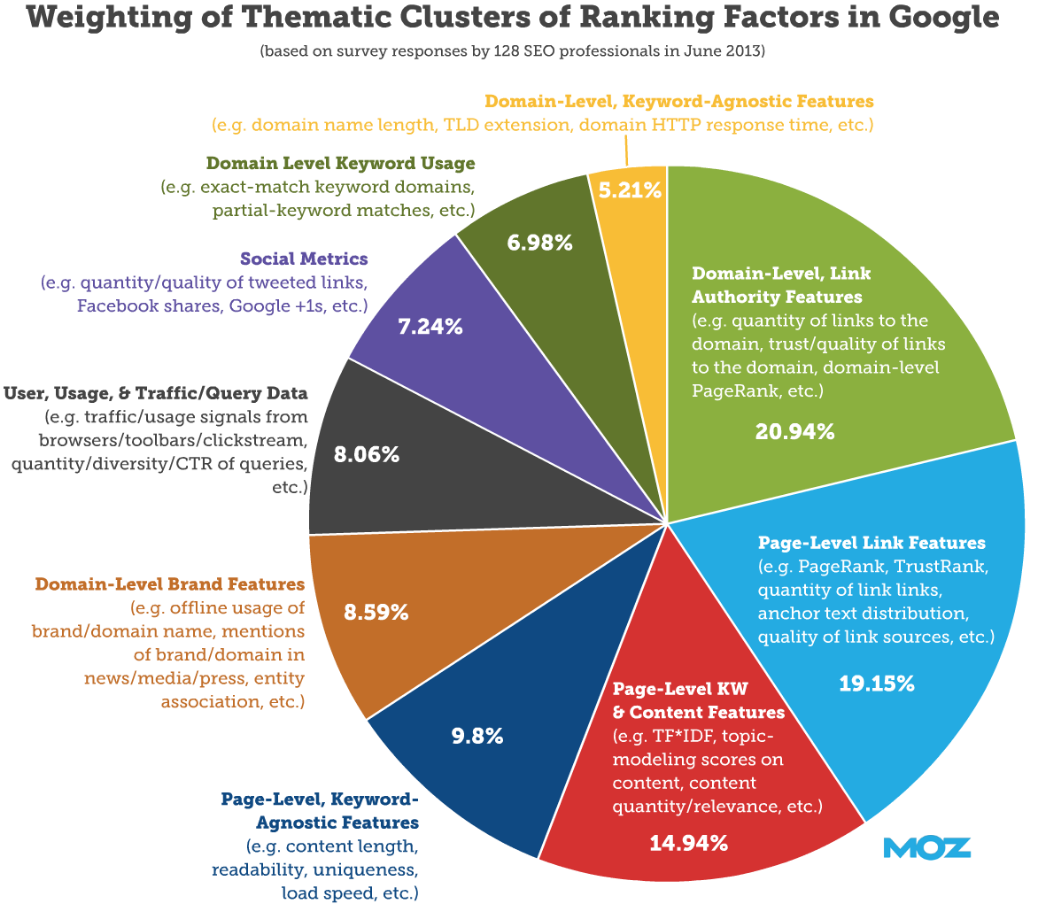 4 min reading time
4 min reading timeBy now, you’re convinced that search engine optimization (SEO) matters. You’ve read SEOmoz’s 2009 article, Perfecting Keyword Targeting & On-Page Optimization. You’ve read Copyblogger’s “Does SEO Copywriting Still Matter?” (YES!).
I still had questions. So I asked four SEO experts,
What are the top 10 things,
in order of importance,
I can do to help my site rankings?
This is what they said.
Elgé Premeau, The eMarketing Strategist

1. Know what you want to rank for. Do your homework, see what’s realistic to target.
2. Meta tags – specifically the title tag (which is the one that counts) and the description tag (so people know what to expect when they click on your link).
3. Backlinks with anchor text. When people link to your site, have them use terms that you want to rank for. For example, Medical Marcom uses medical device marketing for suggested anchor text.
4. Internal linking structure. Leverage the words used in your navigation.
5. More pages. Google favors sites with more pages on them.
6. Page copy. The actual words you want to rank for had better be on the page!
7. Proper use of page headings (H1, H2, etc.). Think of it like a pyramid; don’t overload with H1s.
Elgé stopped at seven. She said, “I’m reluctant to go further. Get these right first. Then engage someone like me to go further.”
Barry Hurd, 123 Social Media

1. Define your final business goal. If you can’t convert traffic, what is the point of having it?
2. Define benchmarks and analytics. If you can’t track, you can’t improve.
3. Target a Gap. Strategize words you don’t compete head-to-head on.
4. Beat the trend. Check words using google.com/insight (no longer available), only use words gaining popularity.
5. Research competitors. Closely examine the top ten search results for the keyword.
6. Use a good URL. Short and clean, with your keyword in one continuous segment.
7. Include keyword content. Include keyword 2-3 times in your general content.
8. Use supportive pages with links. Use relevant ‘sub pages’ with anchor links to your primary keyword.
9. Submit, Syndicate, Share. Spread content with specific keyword links on other portals, directories, and communities.
10. Rinse and Repeat. Update on related keywords consistently to reinforce on-going optimization.
Jon Henshaw, Raven Internet Marketing Tools

1. Optimize your site. Proper information architecture, navigation and semantically structured HTML can greatly influence ranking performance.
2. Network with relevant sites. Research and identify relevant sites and interact with them. Liberally link to them from your site and via social networks.
3. Research high-ranking content. Study the content that ranks well for the keywords you’re targeting and identify new content opportunities.
4. Write content for people. Spend less time on keyword analysis and more time writing for people. Include keywords in titles, URLs and naturally within your content.
5. Share your content. Post and seed links on social networks and encourage your friends to share it. This can provide instant exposure and promote natural backlinks.
6. Make direct contact with sites. Request to write a guest blog, or inquire about site sponsorship and then ask about editorial consideration, and require a backlink.
7. Study metrics for insights. Analyze keyword and content performance or use tools like Raven’s automated keyword opportunity and content opportunity tools.
8. Create linkbait. Design infographics, free online tools, and other compelling content and resources to encourage people to mention and link to your site.
9. Advertise. Use social advertising like Facebook Ads and StumbleUpon Paid Discovery to increase exposure, traffic and linking to your site.
10. Think long-term. Low risk, high impact SEO can take time, but will pay off. You have to earn the trust of search engines and influencers to rank well.
Cyrus Shepard, SEOmoz

1. Check your domain structure. Is everything on the same domain or subdomain? Do you host your own blog? Finally, have you consolidated the canonical versions of your site (www vs. non-www?).
2. Do a title tag site audit. I have never seen a site yet that couldn’t benefit from better title tags.
3. Check your robots.txt files. Is everything good in there? Here’s a robots.txt article SEOmoz on this topic.
4. Install visitor analytics. Understanding your content, keywords and traffic sources through analytics can help you go a long way in increasing your rankings. I recommend Google Analytics as an easy and free solution.
5. Crawl your site for errors regularly. Not to tout our own products, but use tools like the SEOmoz PRO platform to identify and fix crawl errors.
6. Build your email list. Reach out to your contact when you publish new material. Ask for their opinion. Include them in your content. They’ll be much more likely to share and link to you.
7. Understand your best content. Use tools like Open Site Explorer Top Pages reports to identify which content earns the most links, and product more resources in the same vein.
8. Link your social accounts. The more your content is shared through your social community, the more links you are likely to earn and the higher you will rank.
9. Set a content schedule. Discipline yourself to produce great content at regular intervals, whether daily, weekly or monthly. Make content promotion part of this schedule as well.
10. Have fun. Your content should benefit yourself and others. If it’s not fun, it might not deserve to rank. Make your work your joy, and watch your traffic rise.
Leave a question or comment for the contributors, below.
…

